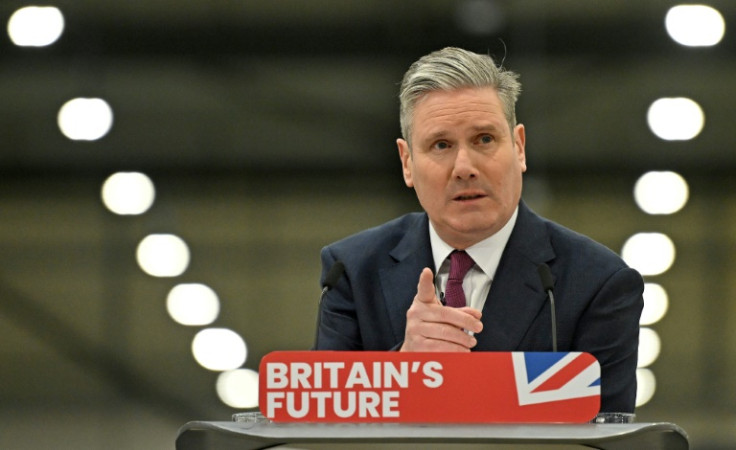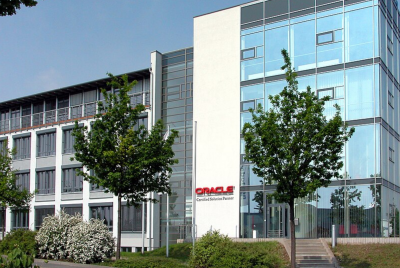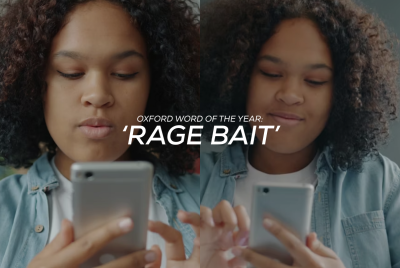50% Of Business Leaders Want Keir Starmer As Next Prime Minister
Corporate leaders have said that they would have more business confidence if the Labour Party win the next general election.

A recent poll by Opinium exposed that half of business leaders have said they would like to see the Labour Party win the next general election, set to take place before January next year.
The group of business leaders who were surveyed said that they would prefer to see Sir Keir Starmer as the next Prime Minister of the UK, instead of a Conservative government led by Prime Minister Rishi Sunak.
The Opinium findings also revealed that 25 per cent of business leaders who voted in favour of Boris Johnson and the Conservative Party in the 2019 general election, said that they were not supporting the left-wing Labour Party.
Adam Drummond, the Head of Political and Social Research at Opinium warned: "Worrying for the Tories is the lack of indication, as we enter an election year, that they can restore public confidence in their handling of issues. Labour continues to hold a lead on being best placed to handle all of the top five issues the public think the country is facing."
This news comes after a poll by MHP Group and Savanta, published in October last year, showed that just 32 per cent of business leaders thought that a right-wing government was "best for business".
The collaborative investigation demonstrated how Labour Leader Starmer had swayed the corporate world and boosted business confidence amongst Labour voters.
Business confidence in Labour hit new records amongst small business leaders after almost half, 45 per cent, of SMEs said that Starmer's party was the "best" leadership option.
Just 29 per cent of SMEs said that they had more business confidence in the Conservative Party.
The MHP polling also revealed that 45 per cent of business leaders chose a future Labour government led by Starmer himself.
The New Labour strategy, which sets out to ensure businesses and workers can effectively contribute to a new government and economy, has been dubbed the "prawn cocktail offensive 2.0".
In a bid to win both right-wing and left-wing votes at the next general election, the Labour Party published a statement that acknowledged: "Business engagement is not about vested interests or prioritising the voice of corporate Britain over ordinary working people - it is about getting a diversity of voices in the room so we can deliver the good jobs, higher wages and better public services British people deserve."
"Business is of critical importance to our country, providing the jobs, growth, goods and services we all rely on," the Labour report continued.
Starmers' character was also favoured over Sunak, who was recently criticised for going ahead with the Rwanda Policy that was ruled unlawful by both the Supreme Court and the Court of Appeal, as 38 against 35 per cent of business leaders favoured Starmer as a leader.
Shadow Chancellor of the Exchequer Rachel Reeves was also dubbed more popular amongst business leaders compared to her counterpart, Chancellor of the Exchequer Jeremy Hunt.
While it is only a small difference, 29 per cent of business leaders voted in favour of Reeves against 27 per cent of those who voted for Hunt.
Josh Kaile, a former Advisor for the Labour Party and the Associate Director for MHP Group, told reporters: "After a difficult few years for Labour, doors are finally being opened to them, and the hard work to convince people to vote for a Labour government really kicks in now.
"With these latest insights from MHP/Savanta, it turns out that Labour's reformed 'smoked salmon and scrambled eggs offensive' is convincing many that the party really is good for business."
This month, the Telegraph newspaper published a YouGov opinion poll that warned the Conservative Party to prepare for an electoral defeat.
The YouGov poll went on to predict that the right-wing party will see a heavy loss, similar to that of its loss to Labour in 1997.
© Copyright IBTimes 2025. All rights reserved.






















